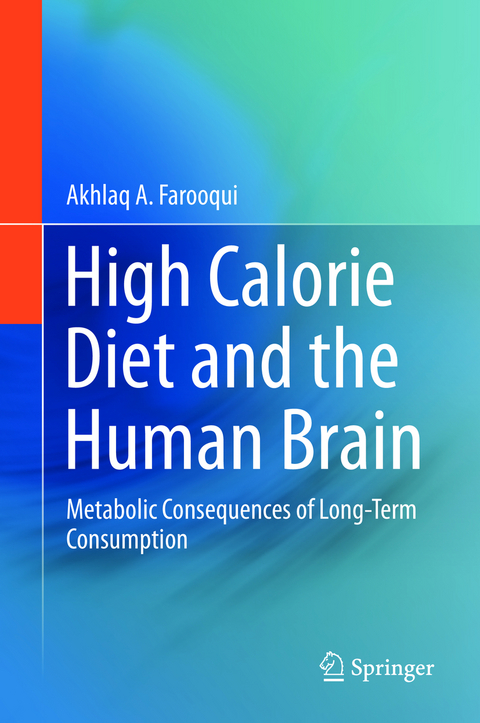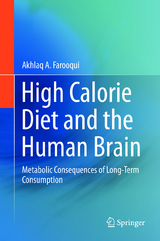High Calorie Diet and the Human Brain
Springer International Publishing (Verlag)
978-3-319-15253-0 (ISBN)
Akhlaq A. Farooqui is a leader in the field of signal transduction processes, lipid mediators, phospholipases A2, glutamate neurotoxicity, phytochemicals and human health and neurological disorders. He has published cutting edge research on the role of phospholipases A2 in signal transduction processes, generation and identification of lipid mediators during neurodegeneration by lipidomics and has studied the involvement of glycerophospholipid, sphingolipid- and cholesterol-derived lipid mediators in kainic acid neurotoxicity, an experimental model of neurodegenerative diseases.
Preface.- Effect of long term consumption of high calorie diet, low calorie diet and Mediterranean diet on human metabolism.- Neurochemical effects of long term consumption of high fat contents in the diet.- Neurochemical effects of long term consumption of high simple carbohydrate contents in the diet.- Neurochemical effects of long term consumption of high animal protein contents in the diet.- Biochemical effects of soft drinks consumption in the brain.- Biochemical effects of high salt consumption in the brain.- Roles of fiber in the diet and its effects on metabolic processes in the brain.- Effects of the high calorie diet on the development of chronic visceral diseases.- Effects of high calorie diet on the development of neurological disorders.- Modifications of high calorie diet needed for optimal health of human brain.- Summary, perspective and directions for future research.- Index.
| Erscheint lt. Verlag | 7.4.2015 |
|---|---|
| Zusatzinfo | XVIII, 308 p. 83 illus., 31 illus. in color. |
| Verlagsort | Cham |
| Sprache | englisch |
| Maße | 155 x 235 mm |
| Gewicht | 686 g |
| Themenwelt | Medizin / Pharmazie ► Medizinische Fachgebiete ► Neurologie |
| Medizin / Pharmazie ► Studium | |
| Naturwissenschaften ► Biologie ► Humanbiologie | |
| Technik ► Lebensmitteltechnologie | |
| Schlagworte | anti-inflammatory metabolites • antioxidant systems • cytokines • Neuroinflammation • proinflammatory metabolites |
| ISBN-10 | 3-319-15253-X / 331915253X |
| ISBN-13 | 978-3-319-15253-0 / 9783319152530 |
| Zustand | Neuware |
| Haben Sie eine Frage zum Produkt? |
aus dem Bereich




